“Securitization for Sustainability of People and Place: A Call to Transdisciplinarity”
The Fifteenth Workshop on the Social Implications of National Security (SINS22
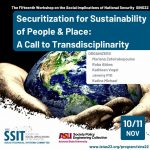


“Securitization for Sustainability of People and Place: A Call to Transdisciplinarity”
The Fifteenth Workshop on the Social Implications of National Security (SINS22

Ruth Lewis, IEEE SSIT Standards Committee Chair, has been named a 2022 recipient of the IEEE Standards Medallion for leadership in promoting the development of IEEE technology and society standards.

The call for responsible innovation is a call to address and account for technology’s short- and long-term impacts within social, political, environmental, and cultural domains. Technological stewardship stands as a commitment to anticipate and mitigate technology’s potential for disruption and especially harm and to guide innovation toward beneficial ends. Dialogue and collaboration across diverse perspectives is essential for developing actionable technological solutions that attend in responsible ways to the evolving needs of society.

The IEEE Workshop on Electronics for mitigating Climate Change (EmC2) will be a place to discuss issues arising by climate change such as the risk of passing a tipping point of planetary boundaries if we do not accelerate the path to reduce GHG emissions.

All the deep philosophical questions, starts the joke, were asked by the classical Greeks, and everything since then has been footnotes and comments in the margins, finishes the punchline.
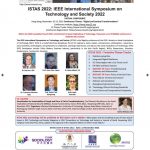
“Digital and Societal Transformations” – Conference website here: https://www.istas22.org/
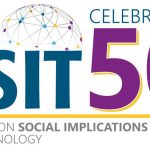
This year, 2022, marks 50 years of history within IEEE for the Society on Social Implications of Technology. It is a moment to reflect on what has transpired in the realm of technology and society over this time, and on the accomplishments of SSIT and its members in helping to guide technological development in directions that benefit humanity. It is also a moment to look forward and imagine what the next 50 years will bring. What should SSIT be doing now to prepare for that future? We welcome participation by everyone who has an interest or stake in issues related to technology and society – which is all of us.

If caregiving is the very essence of being human, why would we consider turning it over to robots? Technology—and artificial intelligence (AI, in particular—have created a world in which automation is prioritized and digital is seen as an improvement on analog—more accurate, more portable, and more controllable. Caregiving is as analog as it gets and it is a field with a serious labor shortage. That makes it ripe for automation—and in fact, the robot caregivers are already here.

Social robotics is poised to impact society by addressing isolation and providing companionship by augmenting human interaction when none is available.

Worldwide, there are 55 million individuals living with dementia and it is projected that by 2050, this number will increase to 139 million. Technological devices and solutions that can benefit the dementia community also carry ethical implications such as privacy and issues of consent. AI-driven LBS solutions may exacerbate the marginalization of individuals living with dementia.
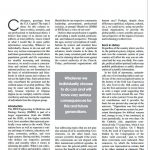
Governmental Affairs: Article by Luis Kun in May-June 2008 issue of EMB Magazine on Science, Technology, and Censorship.

In the first six months of 2018, eight New York City yellow cab drivers, impacted by big tech disruption on the taxi industry, took their own lives. “I am not a Slave and I refuse to be one,” wrote one in his suicide note.

The 2022 IEEE International Symposium on Digital Privacy and Social Media (ISDPSM 2022) with the theme “Applying Engineering Solutions to a Complex Set of Issues” will take place in Silicon Valley, San Jose, California, USA on August 1, 2022 at San Jose Marriott Hotel.

Having a philosophical road map to what is required, might help those with skills to design intelligent machines that will enable and indeed promote human flourishing.

The term “modern indentured servitude” did not originate with this workshop, but we hope that this special issue has highlighted many of the different shapes and processes it can take, some more insidious than others. We would like to think that, if each paper could talk, they would get up one after the other and say, “No, I’m Spartacus.” In these dark times, each of us needs the courage to be Spartacus.

Where do historical debates take us? Their political and economic contexts are similar to ours, and even the list of technological issues is familiar. Many decades later, institutions still feel shaky, economies remain inequitable, geopolitics are increasingly multipolar, and societies are riven by technological change.

It would be good if whenever a client connected to an http server, or indeed any app connected with a central server, the server responded with a corresponding acknowledgment of data, along the lines of “Before we begin our session this morning, I would like to acknowledge the traditional owner of the data which is being transferred, and respect rights to privacy, identity, location, attention and personhood.”

One can see the emergence of ever more efficient forms of intelligence as networked self-similar patterns that are embedded in the universe at its core, driven as they are by the sustained maximization of entropy as a causal force. As a maximizer of future freedom of action, the very existence of gravity can be viewed as a form of embedded, purposeful, goal-directed form of intelligence.
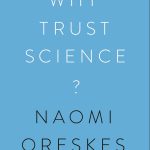
Oreskes’ answer to the question “Why Trust Science” is that science is trustworthy to the extent that the social process by which scientists vet research findings and reach (or fail to reach) a consensus about them is open to a diverse community of scientists with ample opportunity to make objections and critiques and have that feedback taken seriously.

The volume under review is a selection of declassified FBI documents, reproduced in facsimile, from the Cold War era files of 16 people (15 men and one woman) described as scientists.